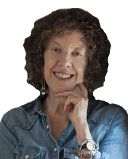Self-Help
5 Ways to Spot Advice-Giving Books That Hurt Women
Women, beware of the advice-giving experts.
Posted January 13, 2019
I was once introduced at a conference as Harriet Lerner, queen of the self-help world. “My books are helpful,” I responded defensively, “but they’re not self-help books.”
My disclaimer (which I’ve made many times since) was not entirely true. But I bristle, as any good feminist should, when my work is reduced to the category of “self-help.” Many self-help books simplify human experience with platitudes, inspirational messages, and explain-everything guides to personal empowerment, self-esteem and relational bliss. As a journalist once noted, self-help explains life the way Cliff Notes explain Tolstoy.
That said, there are many self-improvement books for women that have valuable lessons to teach us about strengthening both our relationships and our self. But with everyone jumping on the advice-giving bandwagon it can be difficult to separate the wheat from the chaff. To become more informed and critical readers of books that promise women greater happiness, healing and well-being, I offer five dos and don'ts that may lend you support as you choose your reading.
1. Don’t buy books that promote guilt.
Women are guilty enough and should not pay money to be made to feel more guilty. In the role of mothers, women are especially vulnerable to receiving contradictory anxiety-provoking and guilt-inducing expert opinion and advice, put forth as the scientific truth of the day.
2. Do avoid books that make large and silly promises.
A self-improvement book won’t bring you ecstatic sex, high self-esteem or an escape from the range of painful emotions that make us human. I bristle at feverishly inspirational books that tell us that happiness is available to us at every moment, no matter how dire our circumstances. Pain and suffering are as much a part of life as happiness and joy. And substantive change occurs slowly over time, with many frustrations and derailments. The good news is that sometimes a small change will make a big difference in your life.
3. Don’t take expert advice too seriously.
At best, experts have a partial perspective, which may or may not be useful to you. Maintain a healthy skepticism toward experts who presume to tell women what is true and how we should think, feel, and conduct ourselves. Nothing is normal, right or true for all women. And disbelieve any expert who predicts your future (or your child’s future) with a great deal of confidence. Your life and the lives of your children will take many surprising twists and turns.
4. Don’t buy books that promote a narrow, blaming attitude toward family members.
Families are not fair and we do not choose the family we are born into. As adults, we nonetheless are accountable for how we navigate our part within these relationships. A good book can provide creative options for changing your part in family patterns without promoting blame and without disqualifying legitimate anger and hurt. Family problems are generations in the making.
5. Do read books that engage your heart and intellect.
Trust your evaluations and gut reactions, including negative ones. Honor the chemistry that exists between the reader and writer. For example, I wouldn’t go within 10 feet of a title like Toxic Mothers or Create Your Own Reality. This reflects my personal beliefs and biases. But books that have an “ick factor” for me may be helpful to you so lean toward what speaks to you.
In short, take what fits from the relationship experts and ignore the rest. Remember that you are the best expert on your own self. Don’t hesitate to close a book after twenty pages if you’re not engaged, or if you’re left feeling down.
On the positive side, you have little to lose by reading. Even a bad book is less expensive and time-consuming than therapy and psychoanalysis, and much easier to get out of when it’s just not helping.


